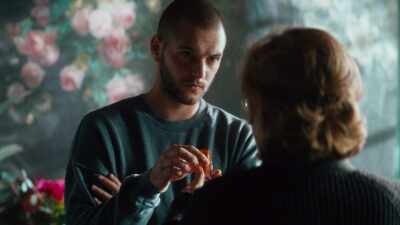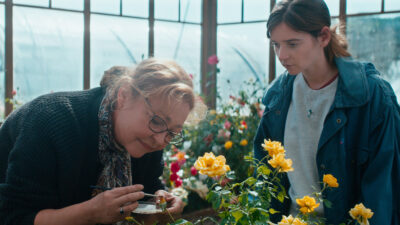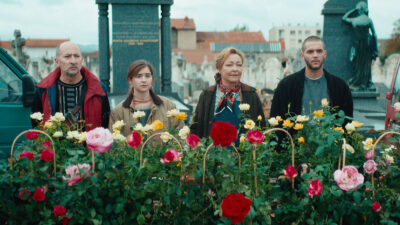The French rightly pride themselves on their artisanal traditions, from fine wines to bread, cheeses and more. That storied culture is increasingly at odds with modern, massive corporations trying to maximize profits, which can radically reduce quality. (This recent Guardian story about baguettes is a case in point.) The “lovingly made light drama” The Rose Maker dramatizes this dynamic. The film follows Eve, one of France’s greatest artisanal horticulturalists, whose rose business is on the brink of bankruptcy. When her secretary hires three inexperienced ex-convicts, they must team up to rescue the business in this verdant comedy. The movie is “a tender dramedy about apprenticeship, striving for excellence, and the passing down of savoir-faire.” (City of Lights, City of Angeles Film Festival)
Lead actress Catherine Frot was recently interviewed about her work on the film:
Q: What attracted you to The Rose Maker?
A: I was initially drawn to the character’s personality and also her arc: that of a woman who was a glory in her profession, who is no longer a glory but who will nevertheless experience a rebirth by accepting the help of people who have also hit rock bottom. People who are in trouble, locked in their solitude but who, despite their differences, end up finding their salvation in solidarity. I was first touched by the social dimension and the humanity of The Rose Maker. And then I realized that the roses were very important in the charm of this tale of helping hands, that they were even essential, that they gave it an indescribable poetry and a heady perfume. I must admit that I didn’t pay much attention to these flowers before. The film introduced me to them. I feel like I’ve made an extraordinary journey into an unknown land. I no longer look at roses in the same way. I know what their beauty requires in terms of care and know-how and today they touch me and make me dream.
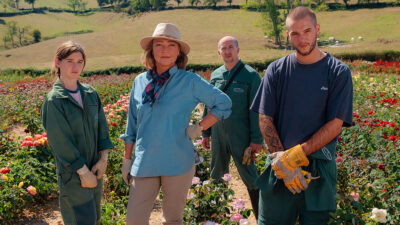
Q: Let’s get back to Eve.
A: For an actress, Eve is an irresistible character, because she is so complex and will evolve so much. At the start of the film, she is proud, upstanding, courageous, closed in on herself; a sort of uptight but bruised boss lady who only keeps going thanks to her “monomaniacal” passion for roses. She was a queen in her field, stronger competitors have taken her crown, and yet she continues to fight for the survival of her business with quite incredible panache. Eve is a bit like an oak. On the surface, she is as solid as a rock, and yet she is weakened by wounds she believes to be invisible: the death of her father, the decline of her business and… the anonymity into which she has fallen. The unexpected arrival of three people in search of identity and social integration is enough to make this stubborn woman give up, question herself, and let a feeling develop in her that, as a childless woman, she thought she would never be able to experience: that of passing something on. Playing someone who comes out of her shell and transforms herself is always exciting, all the more so if, as is the case here, she is driven by an exclusive and totally disinterested passion. In a certain way, Eve “takes after” roses. She lives only for the perpetuation of beauty, something completely useless, fleeting, obsolete and yet fundamental and primordial. Eve undergoes a sort of spiritual quest which borders on poetry and which also gives rise, at times, to a certain humor.
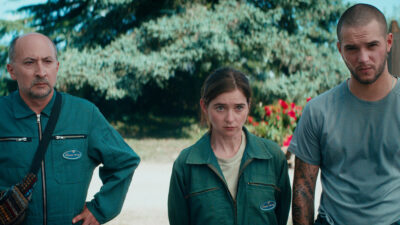
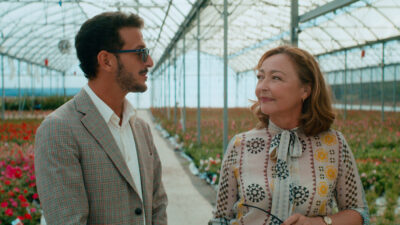
Q: Are costumes important for you?
